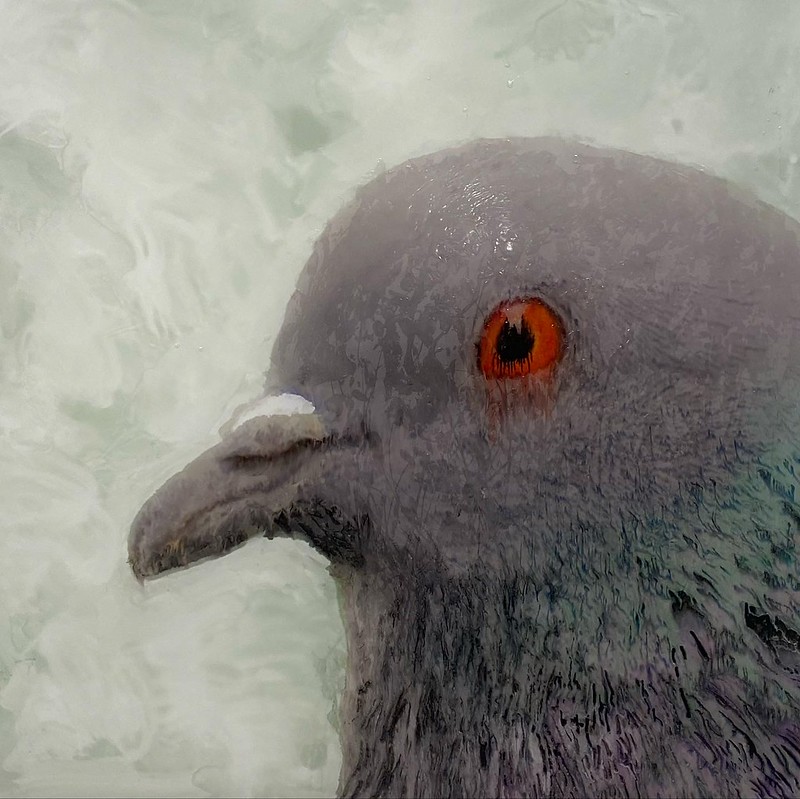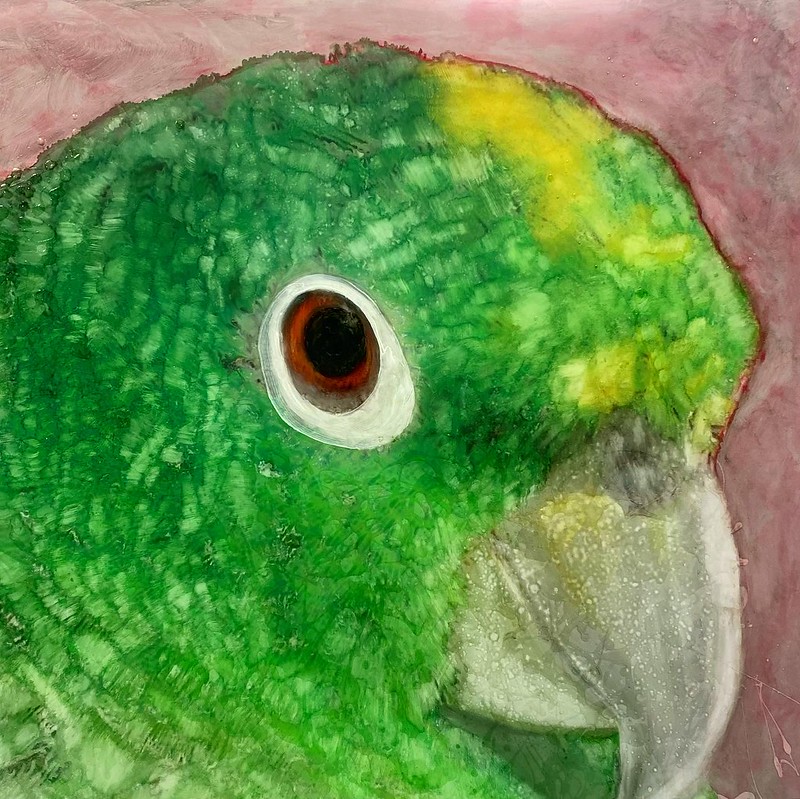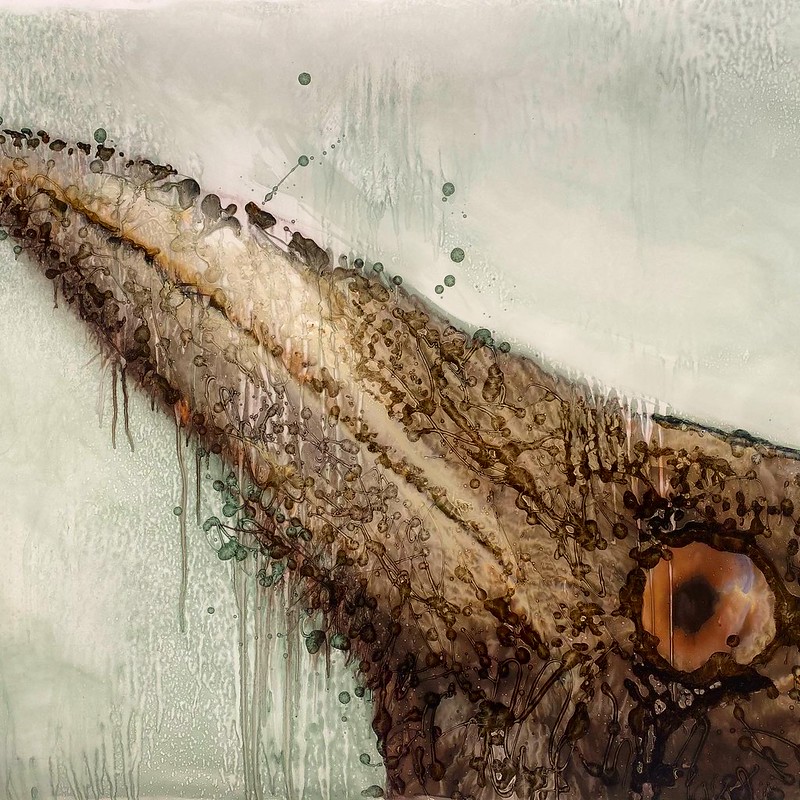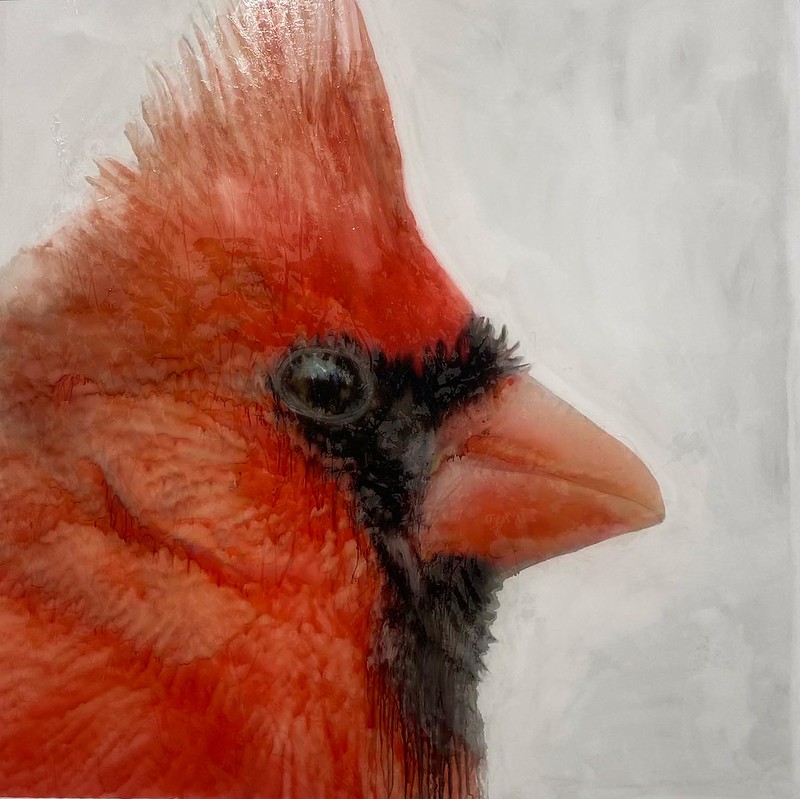 In the first year of their marriage, the couple in
Haruki Murakami's
"The Wind-up Bird Chronicle"
are compelled by her parents,
as a condition of marriage, to visit the family
practitioner of spirit possession, Mr. Honda.
In the first year of their marriage, the couple in
Haruki Murakami's
"The Wind-up Bird Chronicle"
are compelled by her parents,
as a condition of marriage, to visit the family
practitioner of spirit possession, Mr. Honda.
The couple did not believe in the spiritual powers of the old, nearly-deaf war veteran Mr. Honda, but loved him nonetheless, because he was so funny.
For each monthly visit, the couple brought a bottle of Sake to the prophet's spare, modest living quarters, and listened to him bellow his wisdom in a hoarse voice over a television set turned to full volume. "I used to wonder if he could hear what the spirit said to him if he was so hard of hearing. But perhaps it worked the other way: the worse your ears, the better you could hear the words of the spirits," the husband, Toru Okada, mused.
In one visit, Mr. Honda mysteriously advised the couple to "not to resist the flow." There is a world above where they are, and there is a world below that. It is not that one is better than the other, but that "You go up when you are supposed to go up and down when you are supposed to go down," Mr. Honda advised.
When you are supposed to go up, climb to the top of the highest tower.
When you are supposed to go down, descend to the bottom of the deepest well.
And when there is no flow, just stay still. You can grow inpatient from
the waiting, but still you must wait. Sometimes dying is the only way to float free.

But resisting the flow, or the lack of flow, courts disaster. "Everything dries up," and the world turns to darkness.
The other advice the Mr. Honda had for the couple is to "be very, very careful of water," Mr. Honda advised. Real suffering comes from water that goes missing that is supposed to be there, or from water that is present where it shouldn't be.During the war, Mr. Honda explained, he and the fellow soldiers in his unit were unable to get water--or any sort of rations, bandages or bullets-- for nearly three days, because the supply chain was cut off. The soldiers were encamped just in site of a river, which flowed with all the water to drink, but it was blocked by Soviet tanks.
"Being thirsty like that was the worst thing in the world. I was ready to run out and stop a bullet," Mr. Honda said. "Men who got shot in the stomach would scream for water. Some of them went crazy with thirst. It was a living hell."
When Mr. Honda had later died, the Okada, remembered the old man's words: "Dying is the only way for you to float free."
 Okada has become stuck in his life, unable to wiggle free
from his circumstances, even as they change beneath him.
When we meet him he has left his job as a legal aid, but
does not appear to be
overly concerned, and mulls the idea of not returning at all.
Okada has become stuck in his life, unable to wiggle free
from his circumstances, even as they change beneath him.
When we meet him he has left his job as a legal aid, but
does not appear to be
overly concerned, and mulls the idea of not returning at all.
His troubles, it would appear, started with the missing house cat, which worries his wife so. She spends less and less time at home, and eventually disappears altogether. Other women barge into his life, some agreeable to him others less so, their motives all a mystery.
In "The Wind-up Bird Chronicle," the familiar gives way to the strange, the incidental turns out to be the instrumental. The reader must puzzle out the meaning.
Murakami is a fine writer, with sharp sentences and mysterious, delightfully off-kilter narratives. But the story he tells in this hefty volume degenerates by the end, caught up in its own cleverness and outflanked by the often lengthy (and more interesting) tales of the tertiary characters.
Quotes
"I stood still, straining my ears. But I couldn’t tell whether it was our phone or a neighbor’s. The minute you leave your house all phones sound alike."
"I became increasingly uneasy. I'm not one of those people with special intuitive gifts, but the more time I spent with this woman, the more I seemed to smell trouble."

"The fundamental stance I had adopted with regard to my home was to accept it, problems and all, because it was something I myself had chosen. If it had problems, these were almost certainly problems that had originated within me."
"I took the money from my envelope and put it in my wallet. The envelope itself I crumpled and threw in the wastebasket So this was how secrets got started, I thought to myself. People constructed them little by little."
"Every time the wind-up bird came to my yard to wind its spring, the world descended more deeply into chaos."
"Sometimes when one is moving silently through such an utterly desolate landscape, an overwhelming hallucination can cause one to feel that one's self, as an individual human being, is slowly unraveling. The surrounding space is so vast that it becomes more and more difficult to keep a balanced grip on one's own being."
"Military men can see who holds actual power, and that is the one they obey."
"I never heard such screams before: they did not see part of this world. The man started by slitting open Yamamoto's shoulder and proceeded to peel off the skin of his right arm from the top down--slowly, carefully, almost lovingly. As the Russian officer had said, it was something like a work of art. One would ever have imagined there was any pain involved, if it weren't for the screams."
"Certain kinds of information are like smoke: They work their ways into people's eyes and minds, whether sought out or not, and with no regard to personal preference."
"May Kasahara was right: I had just a few too many women around me these days. And each one came packaged with her own, special, inscrutable problem."

"She had passed her last chance to turn back. And now she was probably standing by herself in some strange and distant town. I could hardly bear to think of her that way."
"The best way to think about reality, I decided, was to get as far away from it as possible."
"In my memory at least, the real and the unreal seemed to be residing together with equal weight, and vividness."
"Malta Kano gets in touch with other people but she does not allow people to get in touch with her."
"I felt a strange detachment as if I were trying to leap from one moving vehicle to another that was moving at a different speed. I existed in the empty space between the two."
"Lying in their new box, the old tennis shoes looked like tiny animal corpses."
"To be honest, I almost never use the dictionary. I just don't like dictionaries. I don't like the way they look, and I don't like what they say inside."
"...she dropped her cigarette on the ground as if testing gravity conditions for the day."
“Hell has no true bottom”
"Down there, you could end up at the bottom of a shaft. Nobody knew went on in the darkness of the mine. People would just disappear."
Art: Ida Applebroog's exhibit, Hauser and Wirth gallery, NYC.